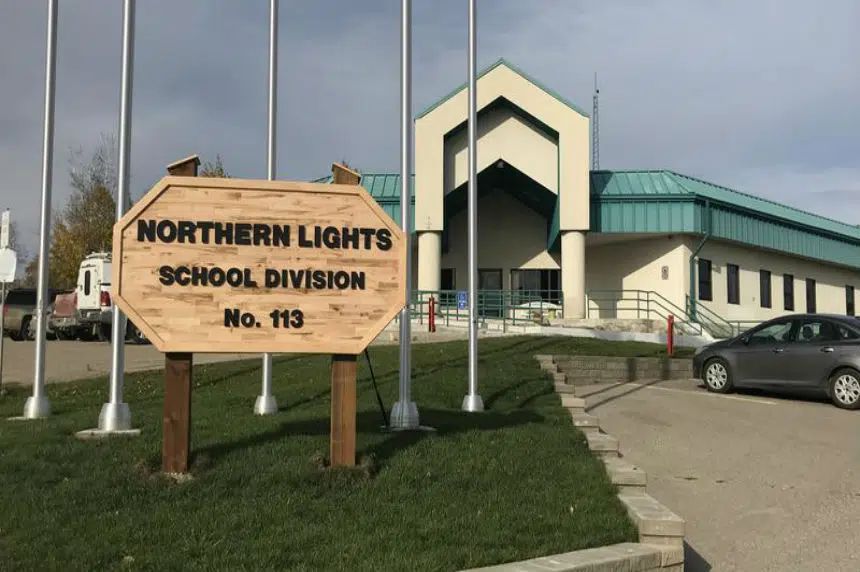LA RONGE, Sask. — An allegation from a school janitor who claimed she was told not to speak Cree was unfounded, a school division in northern Saskatchewan said after an internal investigation.
Jason Young, director of education for the Northern Lights School Division, said a letter was sent to parents and guardians Friday outlining actions taken by the division and the outcome of its probe.
“I think we needed to take the time that we needed to do this right,” Young said Monday. “So, we didn’t rush to any decisions.”
The investigation was prompted by social media posts that gained traction on Twitter in October.
Rose Bradfield is a janitor at the remote Timber Bay School, about 260 kilometres north of Saskatoon near Montreal Lake. She alleged that she was told by the school’s principal in September that it wasn’t right for her to be speaking Cree and it was rude.
Bradfield didn’t complain to the school or the division, but told her husband and sister about it. Her sister then put the allegation on social media.
The principal denied the accusation.
Bradfield did not respond Monday to a request for comment, but has said she was worried that publicity could cost her job.
She was placed on paid leave during the investigation. Young said he could not comment on her employment status.
A senior administrator, not previously assigned to the school, led the investigation and multiple interviews were done, Young said.
During the process, he added, it was made clear how important it is to teach First Nation children their language. Schools in the division are using the situation to recommit support for Indigenous languages.
“This is an important issue to First Nations people and I’m glad it is, and I’m glad it touched a nerve,” Young said.
More than 3,600 of the 4,100 students in the division are Indigenous, as are half of its senior administrators. Out of nine school board members, only one is non-Indigenous.
Young said Cree and Dene are taught in many of the schools and there is a teaching assistant to support Cree instruction in some elementary classrooms.
“We define ourselves as an Indigenous organization,” he said. “So there would be absolutely no policy that would say you cannot speak the language.”
Kelly Geraldine Malone, The Canadian Press







